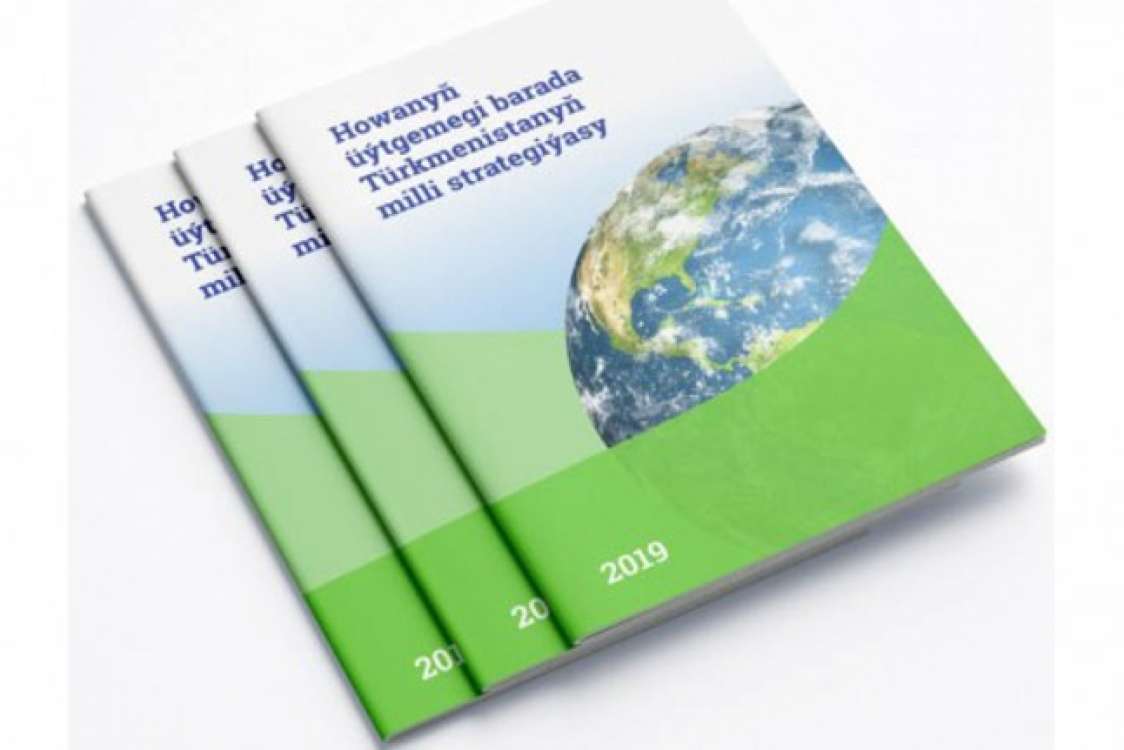

 61
61
Turkmenistan’s Commitment to Green Development: A Focus on Methane Reduction and Environmental Sustainability
With a global energy market presence and abundant natural resources, Turkmenistan is leading regional efforts to integrate environmental sustainability into its economic policies. At the forefront of Turkmenistan’s agenda is methane emission reduction, an initiative strongly backed by the nation’s alignment with international climate goals. Turkmenistan’s proactive strategies for methane reduction, particularly in agriculture, water management, and energy production, reflect a commitment to a greener future, reinforcing its role as both a hydrocarbon producer and environmental steward.
As one of the world’s hydrocarbon-rich nations, Turkmenistan occupies a vital role in global energy supply. However, this leadership comes with a responsibility to ensure that energy production and consumption align with climate goals. In response, Turkmenistan has undertaken ambitious actions to support sustainable resource use, placing environmental protection at the core of its national strategy. Recognizing climate change as a global concern, Turkmenistan ratified the UN Framework Convention on Climate Change and the Paris Agreement, aligning itself with the international community’s climate goals.
Methane, one of the most potent greenhouse gases, significantly contributes to global warming. Turkmenistan has developed a robust roadmap to tackle methane emissions, particularly in the energy and agriculture sectors. In 2023, President Gurbanguly Berdimuhamedov approved the creation of an Interdepartmental Commission on Methane Emission Reduction. This commission, working under the framework of a national roadmap, aims to implement technology-driven approaches to reduce methane output in alignment with the National Climate Change Strategy. Key components include:
As part of Turkmenistan’s National Forest Program, millions of saplings are planted annually to combat desertification, reduce emissions, and support biodiversity. In 2020 and 2021 alone, Turkmenistan planted a combined 55 million saplings to mark the country’s 25th and 30th anniversaries of neutrality and independence, respectively. This large-scale afforestation initiative symbolizes Turkmenistan’s commitment to creating a lasting environmental legacy.
With the recent updates to its Nationally Determined Contribution (NDC) under the Paris Agreement, Turkmenistan has outlined specific targets for greenhouse gas reductions. In addition to methane reduction, these commitments emphasize the shift toward a "green economy" – a model focused on renewable energy sources such as solar and wind power. The National Strategy for Renewable Energy Development, adopted in 2020, sets ambitious targets for renewable energy utilization by 2030, aiming to lower carbon emissions and reduce reliance on fossil fuels.
In November 2023, at the United Nations Climate Change Conference in Dubai, Turkmenistan joined the global methane reduction initiative, underscoring its commitment to international collaboration in tackling climate change. By engaging with international partners, Turkmenistan aims to leverage shared knowledge and advanced technologies to create scalable solutions to reduce emissions across sectors.
As the world transitions toward more sustainable practices, Turkmenistan remains committed to maintaining a balance between its energy production role and environmental responsibility. Guided by a roadmap for green economic development and active methane reduction strategies, Turkmenistan is positioned to serve as a model for sustainable growth in Central Asia.
This national endeavor reflects a long-term vision where economic advancement and environmental stewardship go hand in hand, ensuring that Turkmenistan’s natural wealth benefits both its people and the planet for generations to come.
Mahrijemal ATABALLIYEVA
Lecturer of International University on Humanities and Development
 4235
4235
 3456
3456
 3431
3431
 22
22
 30
30




 30
30

 54
54

 112
112

 196
196
